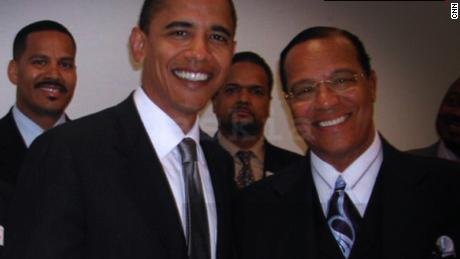get these nets
Veteran
Commentary
How Odafe Oweh reclaimed his identity and his name
The Baltimore Ravens rookie told reporters he will no longer go by his middle name, Jayson, and demands people use his first name

Odafe Oweh (center) is announced as the 31st pick to the Baltimore Ravens during the first round of the 2021 NFL draft at the Great Lakes Science Center on April 29 in Cleveland. Gregory Shamus/Getty Images
By Jean-Jacques Taylor
May 5, 2021
The first time Odafe Oweh addressed the Baltimore Ravens media, the 31st player selected in the 2021 NFL draft uttered the most powerful words I’ve ever heard from a draft pick.
“Jayson is my middle name. My first name is Odafe,” he told them last week. “I’m of Nigerian descent. People were having trouble pronouncing Odafe, so I went to Jayson in my earlier years, but I don’t care anymore, you’re going to have to learn how to pronounce it.”
Those words had to be so liberating for Oweh, a first-generation American born to parents who grew up in Nigeria.
Think about it: Being one of Penn State’s best players wasn’t enough for him to demand that folks pronounce his name correctly, so he let them call him Jayson because it was easier for them.
It wasn’t until NFL commissioner Roger Goodell called Oweh’s name and he was a first-round pick that he declared to the world that fans, reporters, coaches, broadcasters, new acquaintances – everyone – would have to take the time to pronounce and say his name correctly.
Just so you know, it’s pronounced O-dah-feh. That’s three syllables, the same as Jonathan but one fewer than Alexander.
Oweh’s words resonated with me, in particular, because I have a unique name and I often spent my youth debating with teachers about how to pronounce it. Few dreaded the first day of class or the start of a new semester more than I did because of the often contentious conversations I knew would occur.
In the African American community, names carry a special significance. We’re known for giving our children unique names or names with nontraditional spellings. This tradition has been passed down from generations, in part because slaves didn’t always get to choose the names for their children.
We’re also more likely to give our children names such as King, Master, Mister and Sir. This is what happens when generations of Black men grow up being called “boy” as a way to emasculate them.
At times, the way African Americans name their children has been an issue in our country because of name bias, which means an employer or bank is less likely to give a job or loan to a person based on their name.
When the slave trade began in the 1600s, Africans were stripped of their religion, identity and self-worth so they could be more easily conditioned to be slaves.
What better way to strip a person’s identity than by erasing their name.
Alex Haley’s Pulitzer Prize-winning book, Roots: The Saga of an American Family, is a 1976 novel that tells the story of Kunta Kinte, who was captured in Africa and sold into slavery.
The book was made into a weeklong TV miniseries the next year, and one of the show’s most powerful scenes is when Kunta Kinte is lashed mercilessly with a bullwhip until he finally utters, “My name is Toby.”
My father, an activist in the ’60s who continues his activism today as a professor at the University of Buffalo, named me after Haitian revolutionary Jean-Jacques Dessalines.
In high school, I asked people to say my name correctly, but I didn’t always demand it. In college, my father suggested I use my full name – Jean-Jacques – instead of Jacques because it was a more distinctive byline.
Still, I didn’t demand people pronounce my name correctly until I was in my 40s. Sometimes, I even sound it out phonetically (Zhan Zhock) for folks, but like Oweh, these days I insist it’s pronounced properly.
I spent one-on-one time with former Dallas Cowboys cornerback Chidobe Awuzie, also of Nigerian descent, after he was drafted to find out exactly how to pronounce his name, and I’ll do the same with Cowboys third-round pick Osa Odighizuwa.
My sister, five years younger, spent a week in the hospital as Baby Taylor as my father waited for the ancestors to whisper her name in his ear. Finally, he named her Keeanga-Yamahtta. Google Yamahtta, and you won’t find another.
We obsess over names.
We might wait until a little one’s arrival to discover whether it’s a boy or girl, but the name game starts immediately.
Who’s naming the baby? Mom or Dad? Is it a joint decision? Are suggestions allowed? Will we honor a parent or favorite aunt or uncle by gracing the baby with their name?
Folks often name their kids after their favorite singers or athletes. Think about how many Shaquilles, Kobes and Jordans have been born over the last 20 years, and consider how many kids will be named LeBron, Brady or Zion in the next 20 years.
Naming your child is sacred.
Oweh’s decision to start using his given name didn’t attract much national attention, but it’s one of the most important things he’ll ever do.
He reclaimed his identity.
= = = = = =
@phcitywarrior @Nemesis @qwer @Hiphoplives4eva @Gold @Golden @kittenheels @Ian_Carter @Kitsch @chkmeout @Don Drogo @Unknown Poster @GrindtooFilthy @Mhofu @frush11
@Afrodroid @MischievousMonkey
@FU_PAYME @qwer @mbewane @videogamestashbox.com @Jimmy from Linkedin @EA @HewittAve @Cereal_Bowl_Assassin @Ugo Ogugwa @SolesKing305
Last edited:





 .
.  you gonna call him odafe.
you gonna call him odafe.





